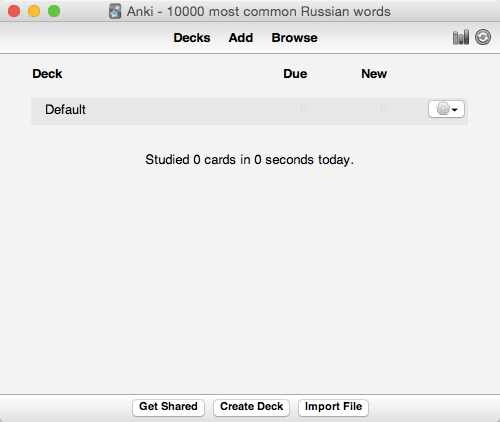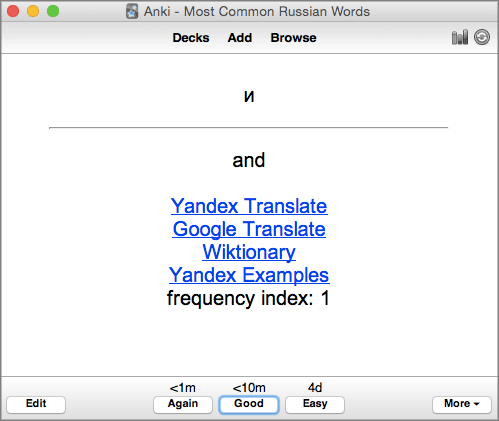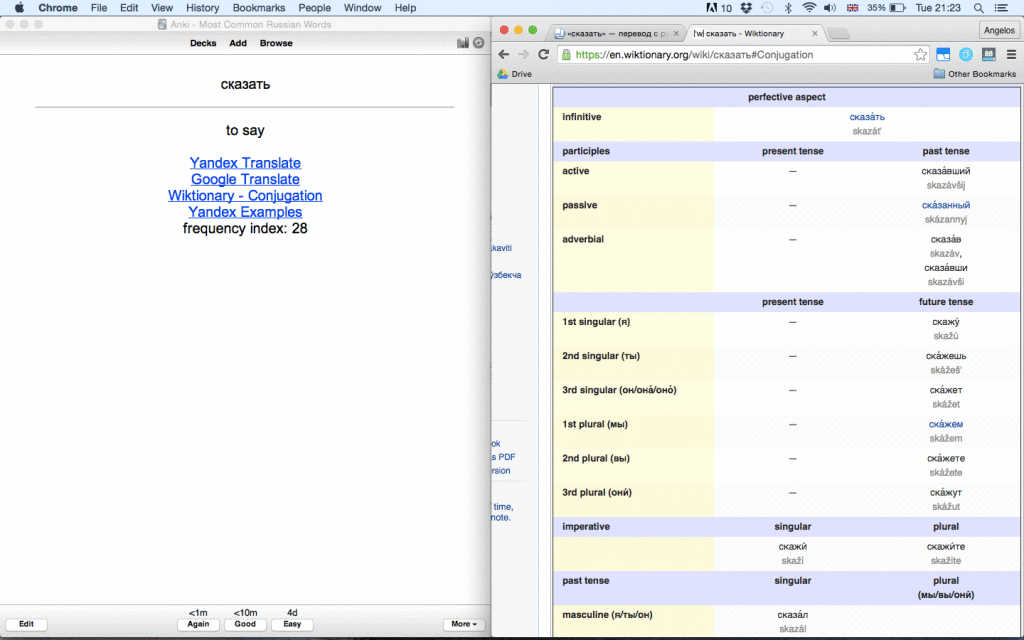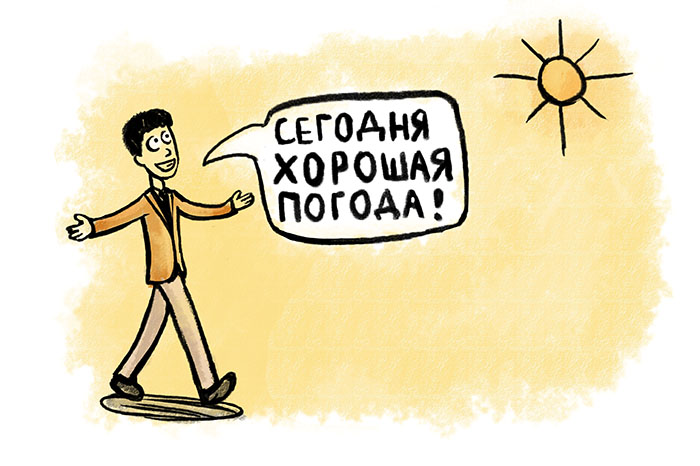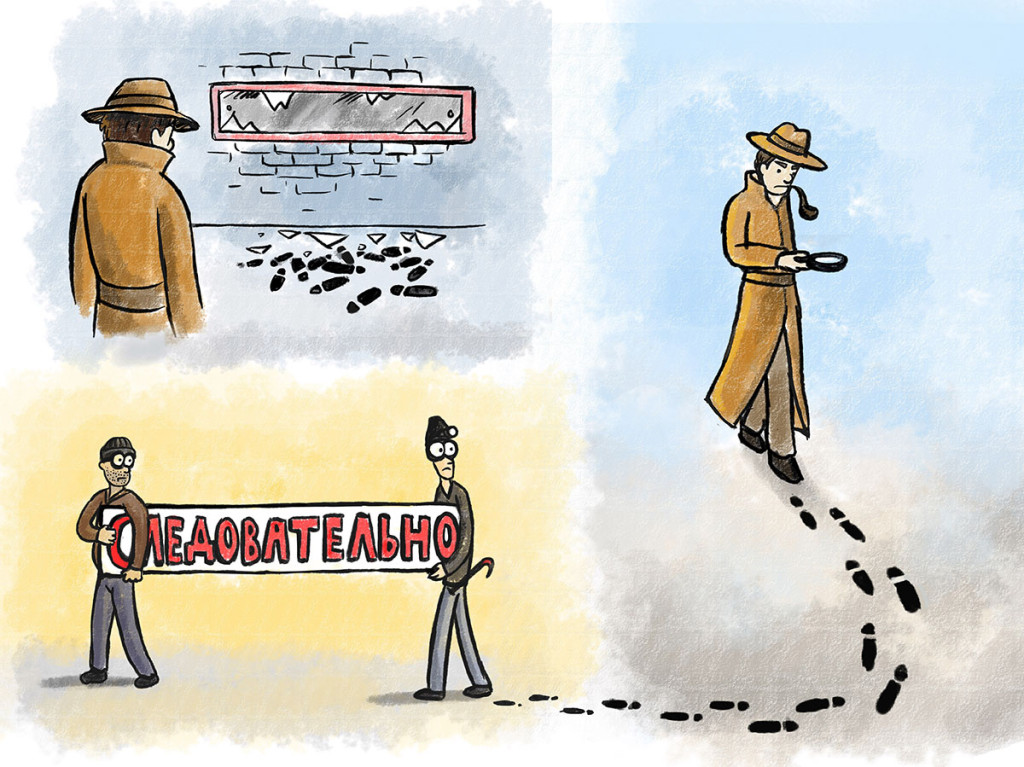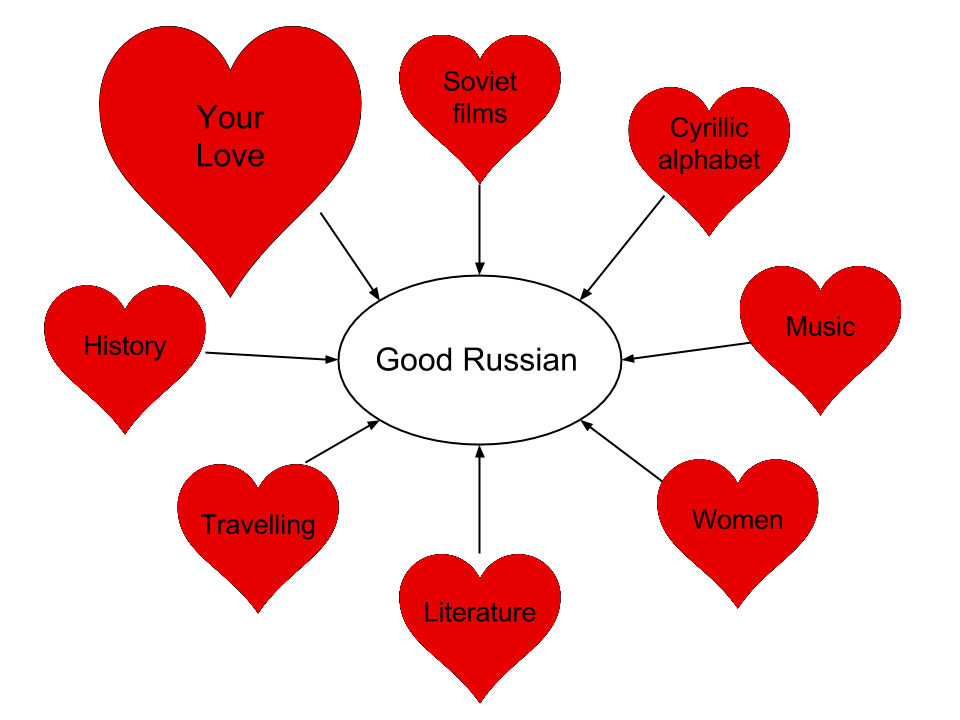Are you ready for some Russian vocabulary? I hope so because I have created Anki electronic flashcards with the 10000 most common Russian words. At the back of every card in addition to the word definition in English, you will also get audio pronunciation and links to Google Translate, Yandex Translate, noun declension/verb conjugation rules, and examples. And if that “10000” sounds a little overwhelming, I have also made smaller decks of cards with the 1K, 1.5K, 2K, 3K, 4K and 5K most common Russian words. All I need from you is some motivation.
Anki is a flash card software which uses a spaced repetition system. That means that a card shows up at spaced time intervals. The length of each interval depends on how well you remember a card every time you review it.
The desktop version of Anki is completely free and available for all platforms (Windows, Mac, Linux). You can download it here.
The first time you open Anki you should be able to see a Window like this:
Your new profile obviously has no cards at the moment. Now download one of my decks (Anki file) with the most common Russian words. Click here to download the decks.
After you download a deck, click on Import file on the above window. Select the file — Anki Deck — that you have just downloaded. Then click on the title of the Deck to start studying the words. Press Study Now on the following window. (Note: If the name reads “10000 most frequent Russian words” irrespective of the deck you downloaded, you haven’t made a mistake. Just rename the file. The reason is I used the big deck to create the smaller decks 🙂
The first card you will get is the following ( И – the most common Russian word!)
After you guess, click on Show Answer to confirm. You will instantly hear how the word is pronounced and reveal the back of the card with the following:
- Google Translate link
- Yandex Translate link
- Wiktionary link (with rules on noun declension, verb conjugation and other useful information)
- Yandex Examples (Examples with the current word on Yandex)
- Frequency Index of the current word (1: Most Frequent).
For example, this is what you get after you press Show Answer on the card И.
Now you can use the links to find more about the word. After you explore the word and find examples, you can press Edit and make any changes at the back of the card. These changes will be saved and become available the next time you see this card. For example, you can add a couple of examples directly on the back of the card for quick reference.
Before you move to the next card:
- If you managed to get it correct very easily press Easy. This means that you will be given this card again in 4 days as indicated above the button.
- If you managed to get it correct but it wasn’t something really obvious press Good. This means that you will be given this card again in 10 min for revision.
- If you managed to get it incorrect press Again. This means that you will be given this card again in less than a minute.
You can also use the following useful shortcuts:
- Again: Press 1.
- Good: Press 2.
- Easy: Press 3.
- Replay the audio: Press R.
- Show Answer: Press Spacebar.
From my experience, I have found a convenient setup to work with Anki and a browser needed for the hyperlinks. I divide my screen into two parts: 1) Anki on the left-half and 2) Google Chrome on the right-half as shown below. Every time you click on a link in Anki, a new tab will open on the right without having to switch windows to see it. Obviously every now and then, you will have to close a few tabs in Chrome. A useful shortcut to quickly close tabs is Ctrl + W in Chrome. Also, if you pay attention below, as the targeted word here is a verb (сказать), the Wiktionary link title refers to the conjugation rules of the verb. If the targeted word is a noun, you will see there a link called “Wiktionary – Declension”. If the word is neither a noun, nor a verb, you just see a “Wiktionary” link.
I know that some of you are not absolute beginners and you would like to start from a more advanced word than И. In that case you can do the following:
- Click on Browse on any of the cards.
- Select your Deck on the window that pops up like below:
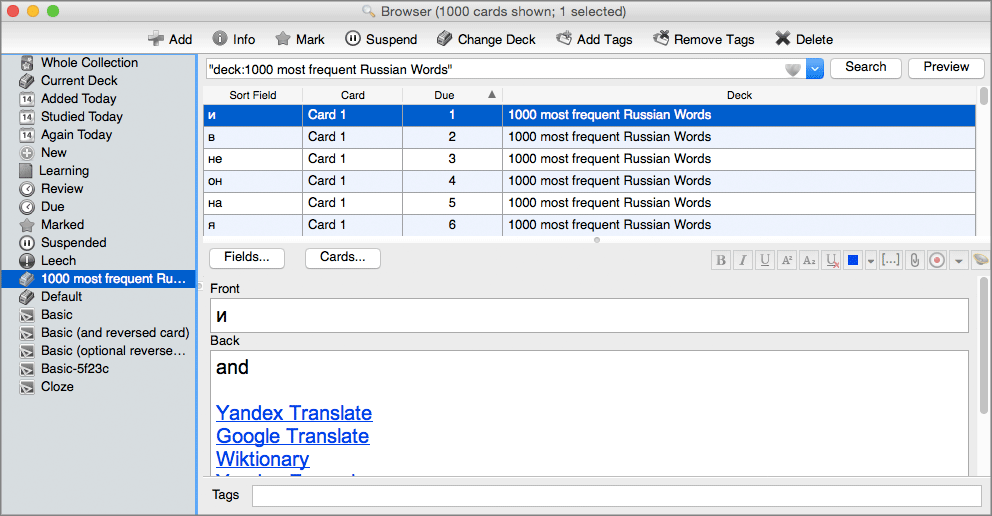
- Click on due to sort the cards by that column (frequency order).
- Click on any card on the Grid (the card up to which you are more or less familiar).
- Press fn + left arrow to select all the previous cards (the familiar words).
- Click Delete on the top right of the window.
After doing all the above you can start reviewing words with a frequency index greater than the one you wish. That’s all! You can now get cracking!
Last but not least, I want to bring to your attention the following points:
- The above method should never be your principal method of learning vocabulary. It should be a complementary method which helps you catch important-frequent words that just slip through your day-to-day vocabulary net. If you want to explore effective language techniques for the Russian language, you can read the relevant section of my blog here. I have also written a book on how to learn Russian with all the necessary methods and material you need to learn Russian effectively without a teacher.
- The default word definitions come from Yandex Translate website. They are not always the best because you can never get the best translation with any tool. Always, consult the links provided to find examples and more information about every word before you move to the next.
- The list of the words has been compiled using this reliable resource here.
If you liked this post, don’t forget to share and leave a comment below to let me know about your progress and ideas! Enjoy!

